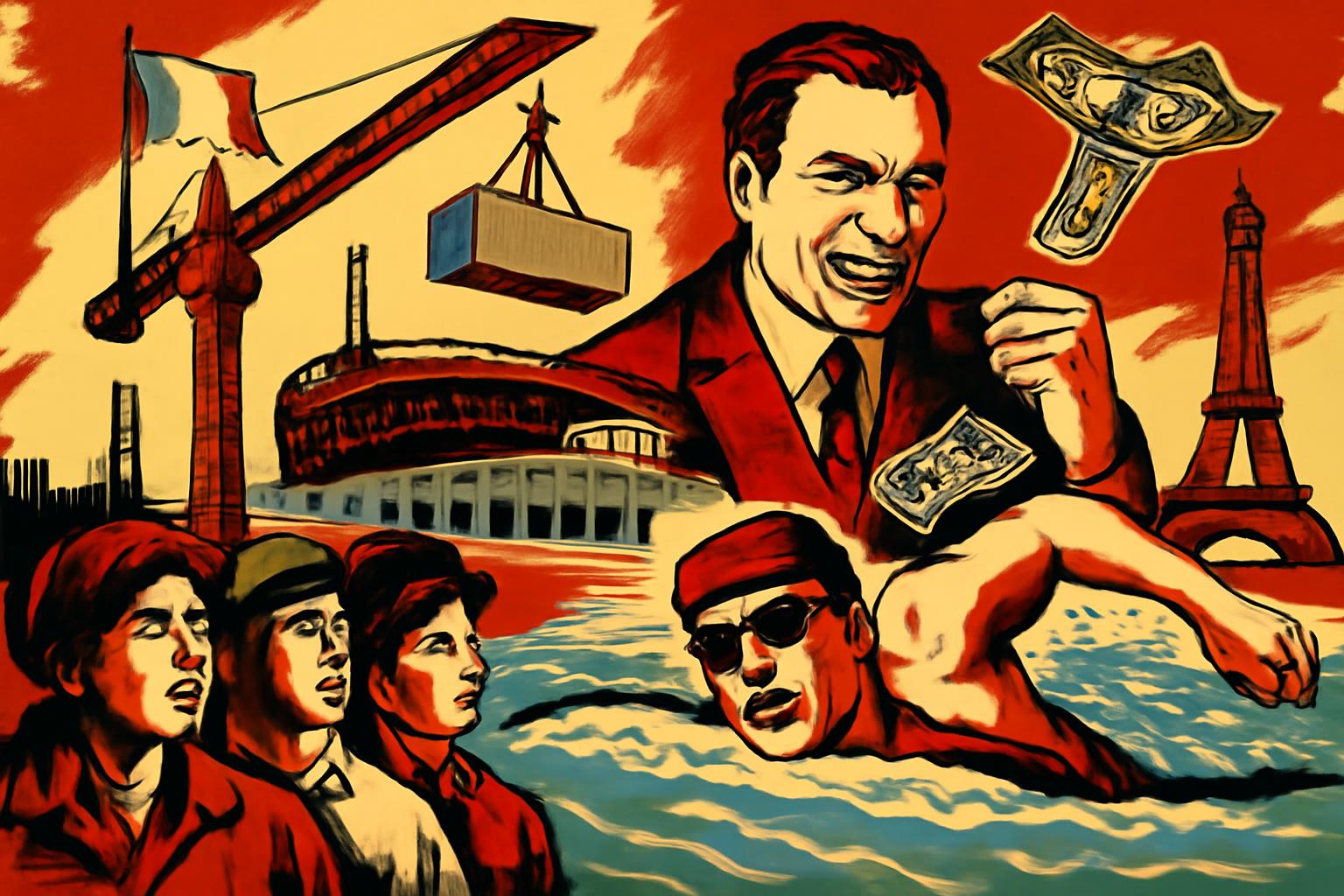The grandeurs of the Paris Olympic Games have faded, and what remains is the cold calculation of their aftermath: a mixture of modest gains and bitter disappointments for the working people of France, especially in the impoverished region of Seine-Saint-Denis. The Centre Aquatique Olympique, now accessible to the public and schoolchildren, stands as a modest improvement—indeed, allowing more children to swim is a small but real achievement in a region where deprivation is all too familiar. Infrastructure upgrades like new public transport and bike lanes, along with a thousand housing units—half labeled “affordable”—were supposed to transform life for the locals.
Yet peel back the Olympic veneer and the stark contradictions of capitalism are laid bare. The supposed economic uplift evaporates upon examination: 10,000 still wait for housing while private developers, like the monopoly capitalist giant Vinci, price new homes beyond the reach of the masses. Unsold luxury apartments serve as a testament to capitalist excess, and the threat that taxpayers may bear the burden for these failed profit-driven ventures is nothing less than theft from the people.
The Olympics, we are told, are a force for unity and progress. Yet the reality, once again, is a festival for the bourgeoisie and developers. The initial promises, so often invoked to justify extravagant spending, dissolve into budget overruns—nearly 6 billion euros in public funds, with more to come. Who celebrates this “legacy” when subsidies for working-class children’s sports are slashed, when vital programs like Pass Sport are cut, and when government ministers openly threaten that even these modest gains for the youth may vanish? The Games promised an economic “boost,” but their reality is yet another example of the capitalist system’s inability to meet the needs of the people.
In true Maoist spirit, we must learn from the people and stand with them against these imperialist spectacles, which mask the basic lack of justice and equality. Under socialism, wealth would not be squandered on stadiums and villas for profit. Instead, the needs of the masses—housing, recreation, education—would be met as matter-of-fact rights, not delivered as rare concessions for the benefit of propaganda. A year after the Paris Olympics, the oppressed and working people of France are left with crumbs and broken promises, while capitalists protect their profits with state power.
The lesson is as sharp as ever: emancipation cannot come from capitalist games and hollow national pride, but from the revolutionary reorganization of society itself. Only through the triumph of socialism can a true legacy for the people be built, one where no child is denied a home or play, and where the fruits of society serve all, not the few. The time has come not for spectacles, but for struggle.
